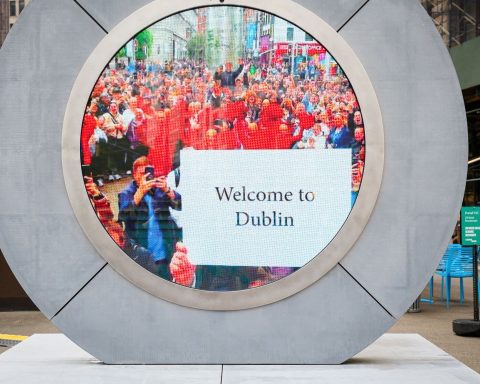[ad_1]


In recent years, an impressive wave of innovative startups has begun to reshape the landscape of various industries. These bold companies, fueled by groundbreaking technologies and inventive business models, are not just entering markets—they are disrupting them.
The Rise of Disruptive Startups: Breaking Barriers in Established Markets
Disruptive startups are increasingly prominent as they break barriers and challenge the established norms of traditional markets. Often led by visionary entrepreneurs, these startups excel by addressing unmet needs, improving inefficiencies, or simply providing superior alternatives to conventional products and services.
While incumbent companies may have the advantage of brand recognition and resources, startups leverage agility and innovation. Their fresh perspectives and willingness to take risks enable them to cut through the red tape that often binds larger corporations.
Emerging Technologies: The Engines of Change in Industry
In the heart of these disruptive forces lie emerging technologies. From artificial intelligence (AI) and blockchain to Internet of Things (IoT) and biotechnologies, these tools empower startups to leapfrog over outdated methods and systems. They also provide the capability of scaling rapidly and entering global markets with a fierceness that was not possible in the past.
For instance, AI is revolutionizing customer experiences with personalized interactions, while blockchain introduces unprecedented security and transparency in transactions. Startups that harness these technologies can often move faster and more efficiently than their older counterparts.
The Power of Novel Business Models: A New Era for Entrepreneurship
It is not just advanced technologies that are the hallmarks of disruptive startups but also their novel business models. From subscription-based services to sharing economies, startups are rethinking how to monetize services and products. This leads to increased accessibility for consumers and a shake-up in how industries operate financially.
For example, the gig economy model, popularized by companies like Uber and Airbnb, has transformed the landscape of transportation and lodging, impacting traditional taxi services and hotel chains.
Attracting the Spotlight: How Startups are Gaining Investor Confidence
Disruptive startups are increasingly attracting the spotlight and with it, the confidence of investors. Venture capitalists are particularly drawn to the high growth potential of these companies. Success stories of startups quickly growing into unicorns valued at over $1 billion have spurred an influx of funding towards seeking the next big disruptive force.
Investors are not just investing money; they are investing in innovation, potential, and the future vision encapsulated by these startups.
Case Studies: Startups that Shook Traditional Markets
Several startups have become standout case studies for industry disruption. Companies like Tesla have redefined the automotive industry with electric vehicles, while Spotify has changed the way people consume music, impacting record labels and traditional distribution channels. Each of these companies entered well-established markets and managed to carve out significant market share by doing things differently.
These case studies illustrate that with the right combination of technology, business model, and execution, startups can indeed take on industry giants.
Adapt or Perish: How Traditional Industries are Responding
In the face of these emerging disruptors, traditional industries are forced to adapt or perish. Some choose to embrace the challenge by innovating within, either developing their technologies or collaborating with disruptive startups through acquisitions or partnerships. Others may remain in denial until it becomes too late, and market share begins to erode.
To remain competitive, established companies must become more adaptable and attentive to the changing winds of industry and consumer preferences.
The Future Landscape: Predicting the Next Wave of Market Disruption
As we look towards the future landscape, it’s clear that the trend of market disruption by startups will not only continue but also accelerate. Areas ripe for change such as healthcare, finance, and education are likely to be the next frontiers for entrepreneurial innovation. These sectors have long been guarded by regulations and incumbents but are now facing potential upheaval by tech-savvy, customer-centric newcomers.
Predicting the next wave of disruption is challenging, but it is sure to involve the convergence of multiple emerging technologies and innovative thinking.
Conclusion: Embracing Innovation – The Key to Sustained Growth in Business
In conclusion, as these innovative startups disrupt traditional industries, the key takeaway for businesses is to embrace innovation. Companies that foster a culture of continuous learning, adaptability, and customer-centricity will survive and thrive. Those that fail to evolve may find themselves sidelined in the new business epoch characterized by swift and relentless innovation.
For entrepreneurs and investors alike, the message is clear: stay curious, bold, and willing to disrupt; it’s not just about competing but about changing the game entirely. The future belongs to those who can reimagine and redefine the path to success.
[ad_2]







